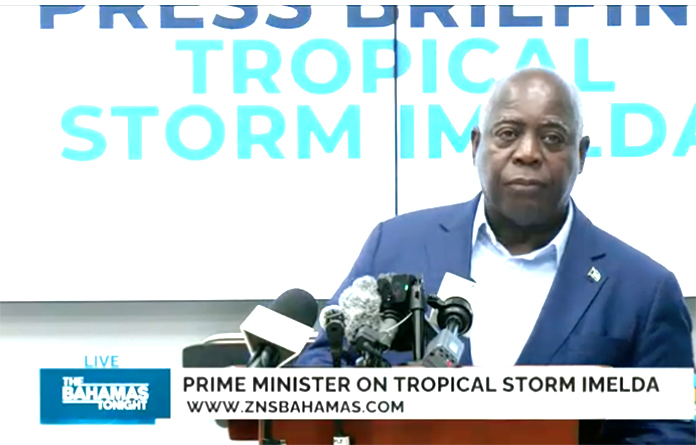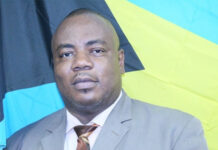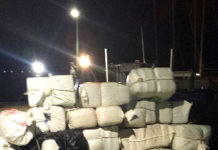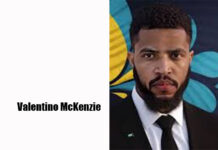Prime Minister Davis’s National Statement on Passing of the Hon. Vaughn Miller, Tropical Storm Imelda, UNGA80 and S&P Global Ratings Upgrade

My fellow Bahamians,
We have lost a friend and a servant to the public, the Honourable Vaughn Miller.
Vaughn’s passing is a shock. It is a loss felt not only in government, but in homes and communities across our country.
He began his life’s work in the church, ministering to people’s spiritual needs. And when he stepped into public service, he carried that same calling with him. Compassion was at the heart of his service.
He was steady. He was thoughtful. He did not rush to be heard. But when he spoke, you paid attention because his words came from a place of conviction and care.
For Vaughn, politics was not about personal ambition. It was about fairness. It was about empathy. It was about making sure ordinary people had a voice.
In Cabinet, he offered counsel that was wise and grounded. In Parliament, he stood firm for his constituents. In his community, he was a neighbour, a pastor, and a friend.
He treated people with respect, even when disagreements ran deep. And in a world where politics can often divide us, he reminded us of what binds us together, our shared humanity.
Tonight, Ann and I extend our condolences to his wife, Cassandra, and to his young son, and to all who loved him.
And I ask the nation to pause with me. To give thanks for his service. To remember his decency. To honour the life he lived.
As a mark of respect, the national flag will be flown at half-mast across our islands from Tuesday, 30th September until Saturday, 4th October, during this official period of mourning for Minister Vaughn Miller.
There will be time to discuss responsibilities and transitions. But tonight is for mourning, and for gratitude.
Even as we grieve, the responsibilities of leadership remain.
In the past few days, our islands have been tested once again by Tropical Storm Imelda.
I have been fully briefed on the storm’s impact. And I want to thank the Disaster Risk Management Authority for its leadership.
I want to thank our island administrators for their coordination.
And I want to thank Bahamians across our islands who took warnings seriously, evacuated when needed, and looked out for one another.
And I’d like to thank Deputy Prime Minister Chester Cooper, who, in my absence, held the reins admirably.
Because of your preparation, lives were saved.
Additionally, all public offices across The Bahamas will resume normal operations tomorrow.
The Ministry of Education advises that all public schools are expected to reopen tomorrow, Tuesday, September 30, 2025, with the exception of the following due to flooding issues:
Sandilands Primary
Sadie Curtis Primary
Claridge Primary
Cleveland Eneas Primary
Judith P. Thompson Primary
Buttonwood Preschool
Coconut Grove Preschool
Sybil Strachan Primary
Gerald Cash Primary
Stephen Dillet Primary
Williams Town Primary
Central Abaco Primary
Moores Island School
Coopers Town Preschool
We appreciate the cooperation of parents, guardians, and staff as we continue to prioritize the safety and well-being of our school communities.
Further updates will be provided as conditions improve by the Ministry of Education and Technical and Vocational Training.
Private schools are asked to conduct their own assessments and make determinations based on their individual circumstances.
We appreciate the cooperation of parents, guardians, and staff as we continue to prioritize the safety and well-being of our school communities. Further updates will be provided as conditions improve.
The Department of Meteorology has lifted the warnings across The Bahamas, except for Abaco and its cays and Grand Bahama, which are likely to be cleared later this evening.
Notwithstanding the aftermath is serious. Floodwaters remain. Roads are unsafe. I urge you to stay off the roads unless absolutely necessary.
Our Ministry of Works and its partners are already out there, clearing, restoring, rebuilding. They need space to do their jobs. Please give them that space.
Storms like this remind us once again who we are. We know what it means to face hardship. We know what it means to prepare, to endure, to recover. And we know that when we work together, we can meet any storm that comes our way.
Watching multiple storms gathering in the Atlantic last week, it was clear to me that our advocacy for The Bahamas on the world stage continues to be critical. It has yielded some good results, and we need to keep fighting.
At the United Nations, I carried your voices into one of the world’s great halls. And I reminded the world that Bahamians are living on the frontlines of a changing climate.
Scientific studies confirm that climate change is warming waters, and those warmer waters are driving up the intensity of storms in the Atlantic basin.
Every major storm leaves behind damage that government must repair.
Roads are washed out.
Schools and clinics are ruined.
Homes and docks are destroyed.
Rebuilding – just to get back where we started – is a necessity, not a luxury.
Hurricane Joaquin, Hurricane Matthew, Hurricane Irma, Hurricane Dorian – these storms alone caused more than $6 billion in direct damages – and then consider the economic disruption, the environmental damage, the significantly higher insurance premiums.
The indirect costs nearly double our losses.
So cleaning up after each storm means new borrowing. Year after year, hurricane after hurricane, our debt rises as we rebuild what was already built before. And while we are busy fixing what was lost, lenders are factoring our climate risk into their interest rates – which means it’s more expensive to invest in the things we need, from better hospitals to new industries to stronger infrastructure to withstand stronger storms. Also, insurance companies are factoring our climate realities into their premiums, causing our premiums to be higher.
This is the trap that climate change sets for countries like ours. We contribute little to the emissions that cause climate change, yet we face destruction that pushes us deeper into debt, and then our debt and climate risk make new investments – in our country, and in our people – more expensive.
At the United Nations, and in other organizations, we are working to strengthen coalitions of small island states and countries in the global south – because we have more leverage when we work together.
We are clear: we need financing that is fair, and does not punish us for disasters we did not create.
We need real support that allows us to rebuild without sinking further into debt.
For Bahamians, climate change is not just about wind and water. It is about the weight of debt on our shoulders, limiting what we can do for our people.
We have made important progress on climate finance, and there’s a lot more work ahead.
Just as the most severe consequences of climate change occur in countries which pollute the least, other serious problems cross borders with ease. Guns and drugs from abroad are a plague on our communities. Inflation elsewhere leads to higher prices at home. War and conflict drive up energy prices. Crisis and instability rarely stay contained.
Which brings me to Haiti.
For too long, The Bahamas has been left to carry the weight of Haiti’s crisis.
It is not fair to us as Bahamians.
As I have said before: Our country has been through a lot. We have very serious challenges and limited resources with which to face these challenges.
We are a compassionate people, but we cannot take on burdens that are not ours.
At the United Nations, I made it clear that The Bahamas cannot, and will not, carry Haiti’s problems on our backs. We will defend our borders. We will protect the opportunities and services that belong to Bahamians. And we will keep pressing the international community to do much more.
Stability in Haiti requires real commitment from global powers, from regional partners, and from international institutions.
We will be a good neighbour, but not at the expense of our own people.
I said this at the United Nations because I know Bahamians expect me to stand up for them. And I will keep doing exactly that.
I also underlined our commitment to peace and stability in our region.
The Caribbean must remain a place where people can build their futures without fear of conflict or disruption. That requires cooperation with our neighbours. It requires strong regional institutions. And it requires international partners who respect our sovereignty and share our vision of prosperity.
A bigger Bahamian economy, with many more Bahamian success stories – that’s what I’m working to build.
In New York last week, I had our country’s economic future in focus.
Because we can’t only worry about risks. We must also seize opportunities.
That is why we are advancing our efforts to make The Bahamas a hub for data storage and digital services.
There is extraordinary demand for reliable offshore data hosting and demand for specialized digital service sectors, including cloud computing, cybersecurity, and colocation services.
We can play a significant role for global companies seeking well-regulated environments.
This is about diversifying our economy. It is about creating new industries. It is about giving young Bahamians meaningful careers in the digital age.
In New York, I met with leading global firms in this field. The discussions were positive. And I believe they can lead to real investments here at home.
If we act with urgency, The Bahamas can secure its place in the new digital economy. And I intend to make sure that we do.
While in New York, we also expanded our circle of diplomatic friends. The Bahamas established diplomatic relations with Senegal, Kyrgyzstan, Djibouti, Palau, and Angola.
These partnerships will create opportunities in trade, in cultural exchange, and in international cooperation.
And as I said earlier, our voice is stronger in global forums when we work with others to speak in a unified way on key issues.
Finally, I want to thank the Bahamian people, for the privilege of the work we do. There are – inevitably – bumps along the way, but we are making important progress on many fronts.
Last week, S&P Global Ratings announced that The Bahamas’ long-term sovereign credit rating was upgraded with a stable outlook, from B+ to BB-. And a likely further upgrade will happen in the short term.
This is our country’s first upgrade in more than a decade.
It tells the world that confidence is returning to the Bahamian economy. Where there was doubt, there is now trust in our ability to grow, manage debt, and create stability. A stronger rating opens the door to lower borrowing costs, greater investor confidence, and new opportunities for Bahamian businesses.
This upgrade, of course, is not the end of the road. There is still work ahead. But it is proof that progress is real, that step by step, our country is moving in the right direction.
So tonight, even as we mark that progress, we are also carrying the weight of loss and the lessons of resilience.
We are mourning the passing of Vaughn Miller.
We are recovering from Tropical Storm Imelda.
And we are reflecting on the work we carried out at the United Nations.
These may seem like separate moments. But together, they tell the story of who we are.
Vaughn’s life reminds us that leadership is about service and humility. Imelda reminds us that resilience is part of our national character. And the United Nations reminds us that even a small country can stand tall when it speaks with clarity and purpose.
We have known sorrow before. And each time, we have honoured and healed.
We have known storms before. And each time, we have prepared, endured, and rebuilt.
And though we are small in size, time and again we have raised our voice, and the world has listened.
That is the story of The Bahamas. That is the strength of our people.
So today, let us honour Vaughn Miller.
Let us remain cautious until every storm warning is lifted.
And let us move forward with confidence, together.
May God bless the memory of Vaughn Miller.







